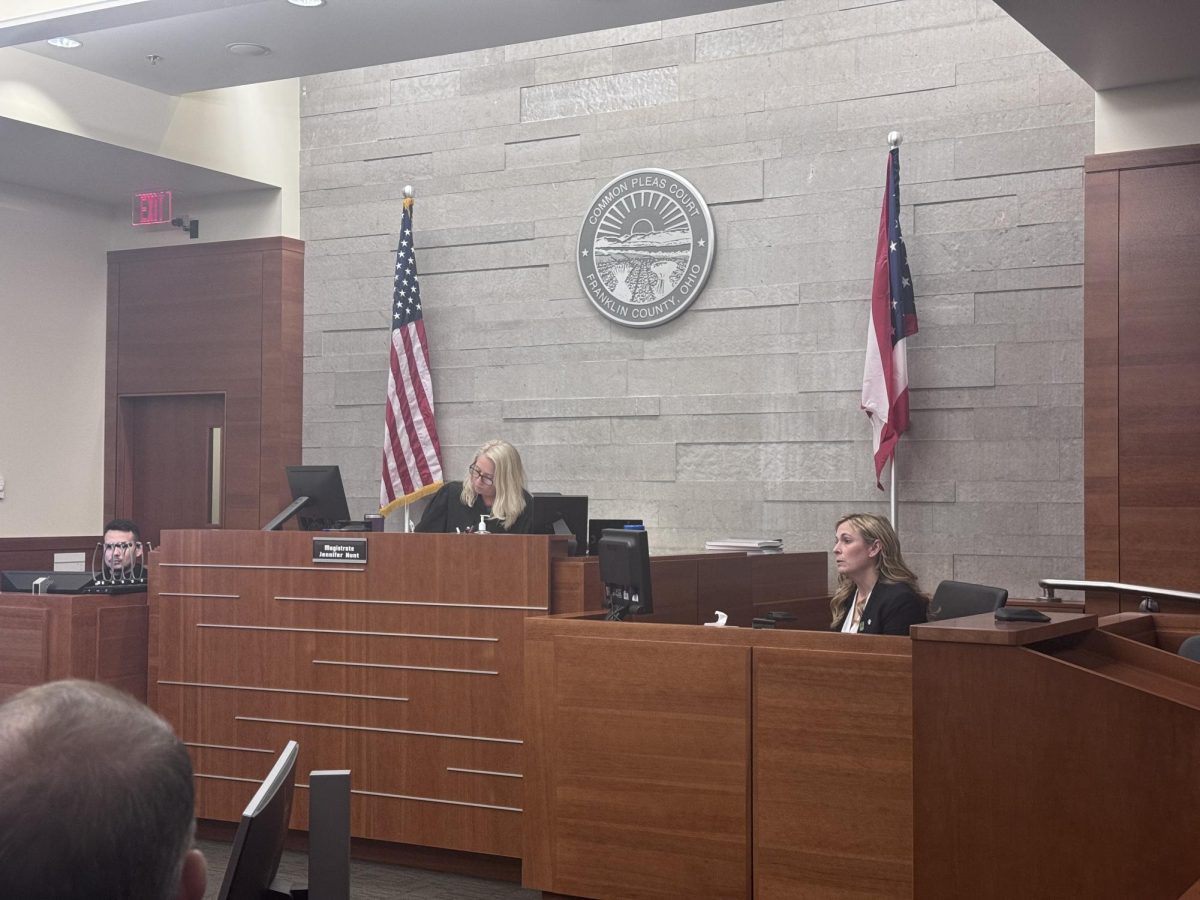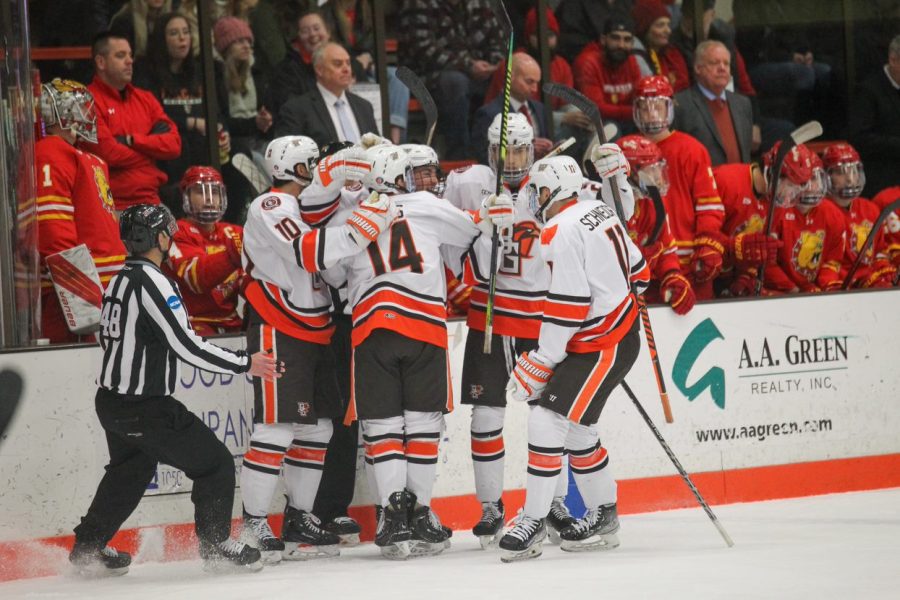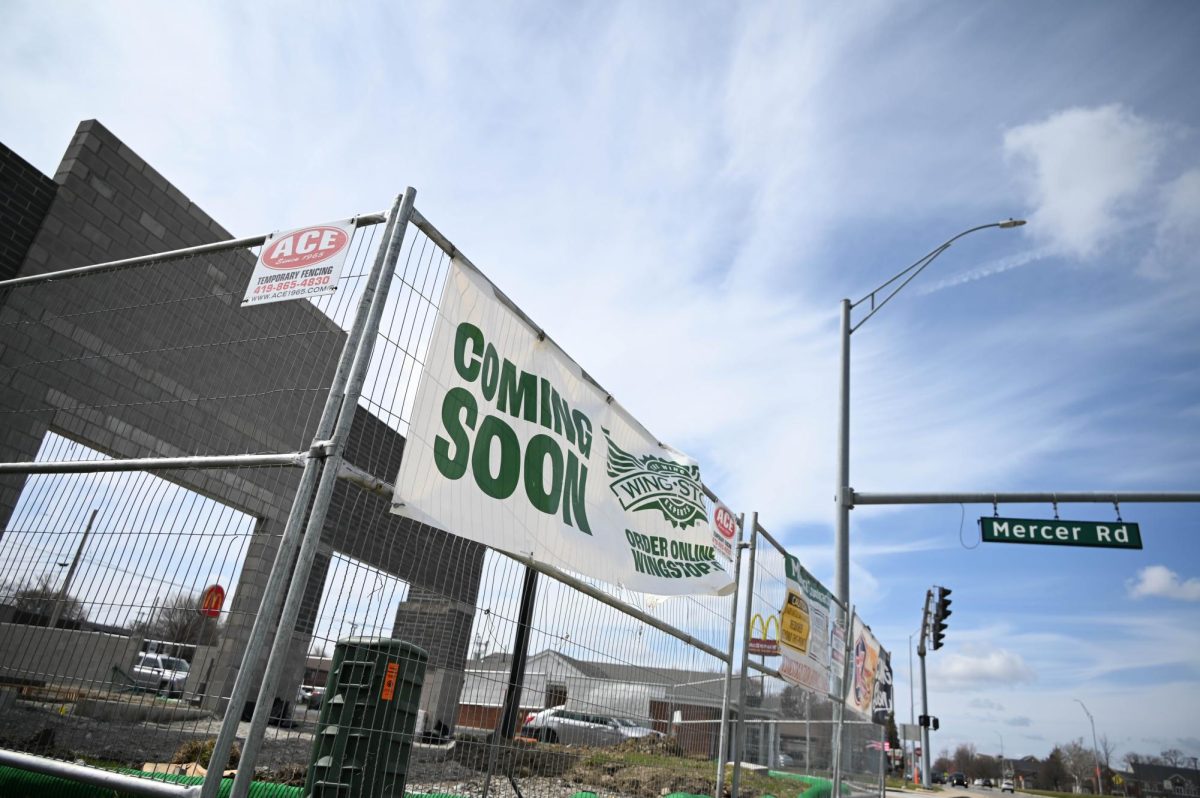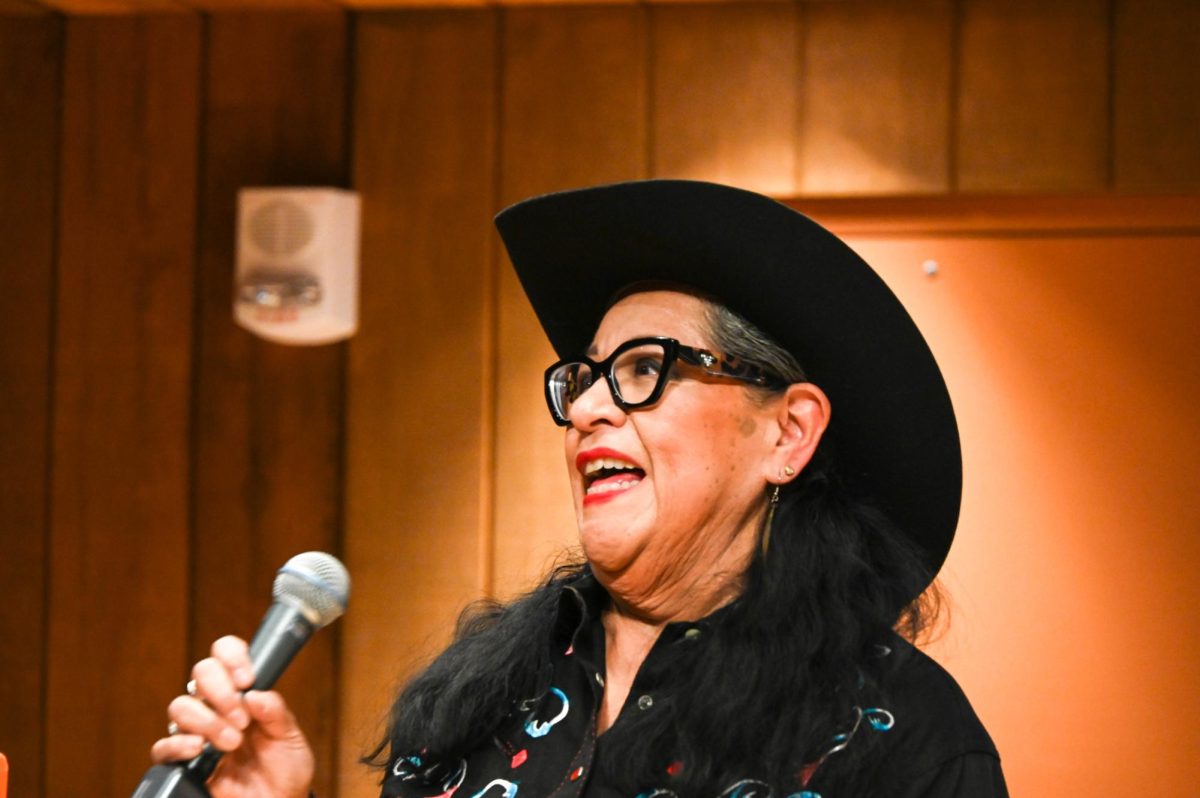A group of BGSU students, staff and faculty covered about half the union oval on March 1 at 7:30 p.m. to remember Stone Foltz, a former BGSU student who died of a hazing incident nearly a year ago.
Three people spoke at the memorial: Interfraternity Council President Simon Peter “Pete” Dunkle V, BGSU President Rodney Rogers and BGSU Chief Health Officer and Hazing Prevention Coordinator Ben Batey. Each noted how they did not know Foltz.
During Rogers’ speech, he said Foltz’s family was unable to attend the memorial because of another commitment. He said “on behalf, we want them to know, that on behalf of each of you, all of our faculty and staff, students, alumni and community member, in this great community of Bowling Green, we want to make sure they know that we are offering our sincere and heartfelt condolences to his family and friends.”
“Sadly I did not know Stone at his passing. I had not met him prior to that, so I’m not going to pretend to speak as I did know him. But since then, I have had a chance to meet with his family and friends on many occasions and have felt like I have gotten to know him a bit through his family, his little sister and brother and certainly his mom and dad.” Rogers said.
The memorial was a time to remember Foltz as not only a BGSU student, but “someone who was kind, full of life, always willing to help someone else and looking out for others,” Rogers said.
Rogers also mentioned a promise Foltz’s family made to him as he was passing.
“They made a promise that he wouldn’t be forgotten and that is something we share together. We want to make sure he is not forgotten and work needs to continue today and every day as we move forward,” Rogers said.
During the memorial, a wooden plaque, standing in place of a bronze stone marker still being made, was displayed.
The completed bronze plaque will be permanently placed in the Greek village to remember Foltz.
Dunkle represented the student body’s voice during the memorial as he was the only student to speak. Though Dunkle didn’t know Foltz personally, he was honored to represent the student body.
“Although I didn’t know him, it is important to help,” Dunkle said.
Dunkle’s position as IFC president has included working through changes after Foltz’s death. The council is reviewing their chapter rituals, member conduct standards, new member intake processes and even social practices.
“I just felt that … if I really want to own what I believe in, I should (become IFC president), and not just stand by.” Dunkle said.
IFC is also planning events and seminars to bring the community together and to aid the community’s recovery.
“Stone has had such a huge impact, even for those of us who unfortunately never got a chance to meet him, but his memory continues and it drives our work and it drives us everyday to educate and really work not only amongst our community members but across Ohio to make a difference so that no other community has to suffer that tragic loss.” Batey said.
Foltz’s death was a factor in the passing of Collin’s Law, which established a statewide anti-hazing framework created by all presidents of public universities in Ohio.
On campus, a new position was developed: Hazing Prevention Coordinator. Batey was appointed by Rogers.
Other administrators made an appearance in the crowd, such as Jacob Clemens, director of C. Raymond Marvin Center for Student Leadership and Civic Engagement; Jodi Webb, associate vice president of Student Affairs; Joe Whitehead, provost and senior vice president of Student Affairs; and Chris Bullins, dean of students.
At the end of the memorial students were asked to enter the Bowen-Thompson Student Union and sign an anti-hazing letter, inviting high school administrators to BGSU for an anti-hazing summit in August 2022.


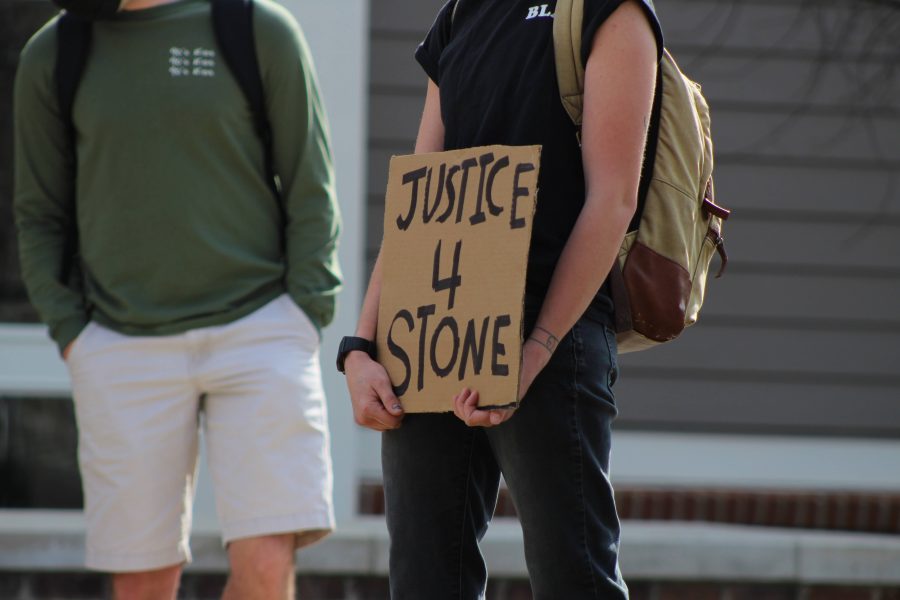
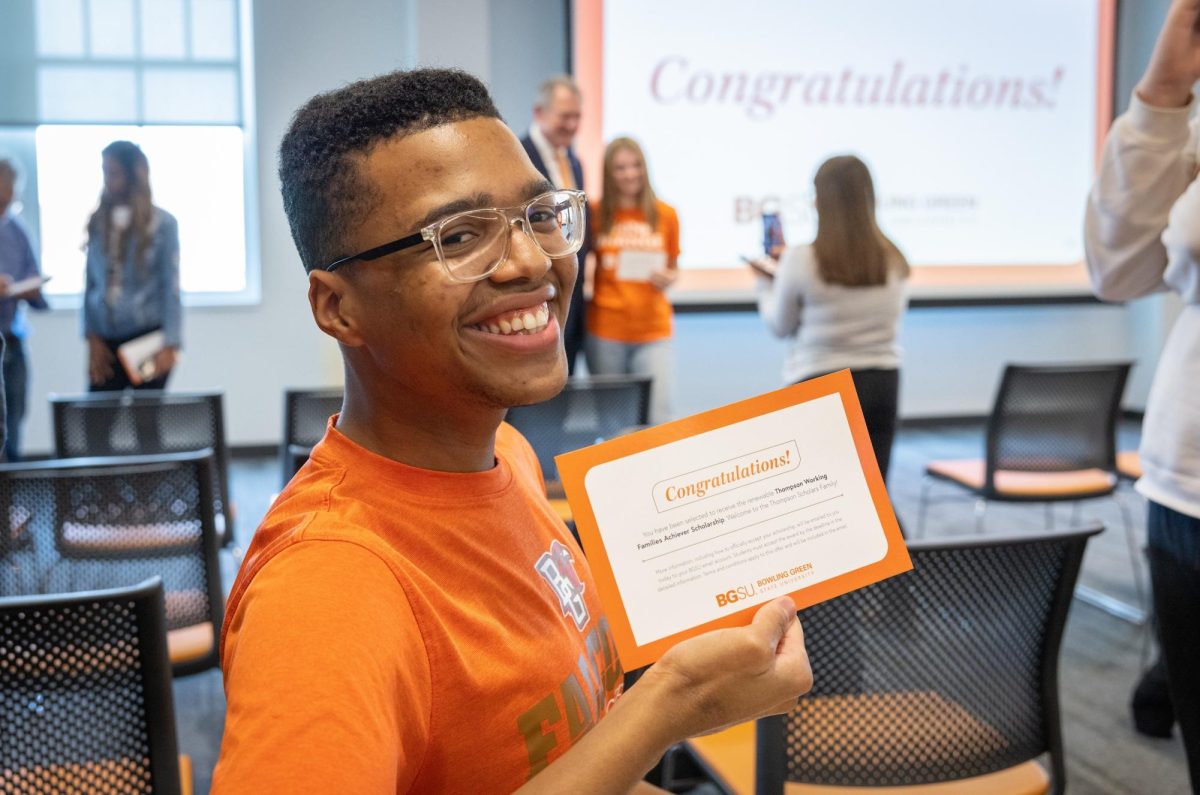
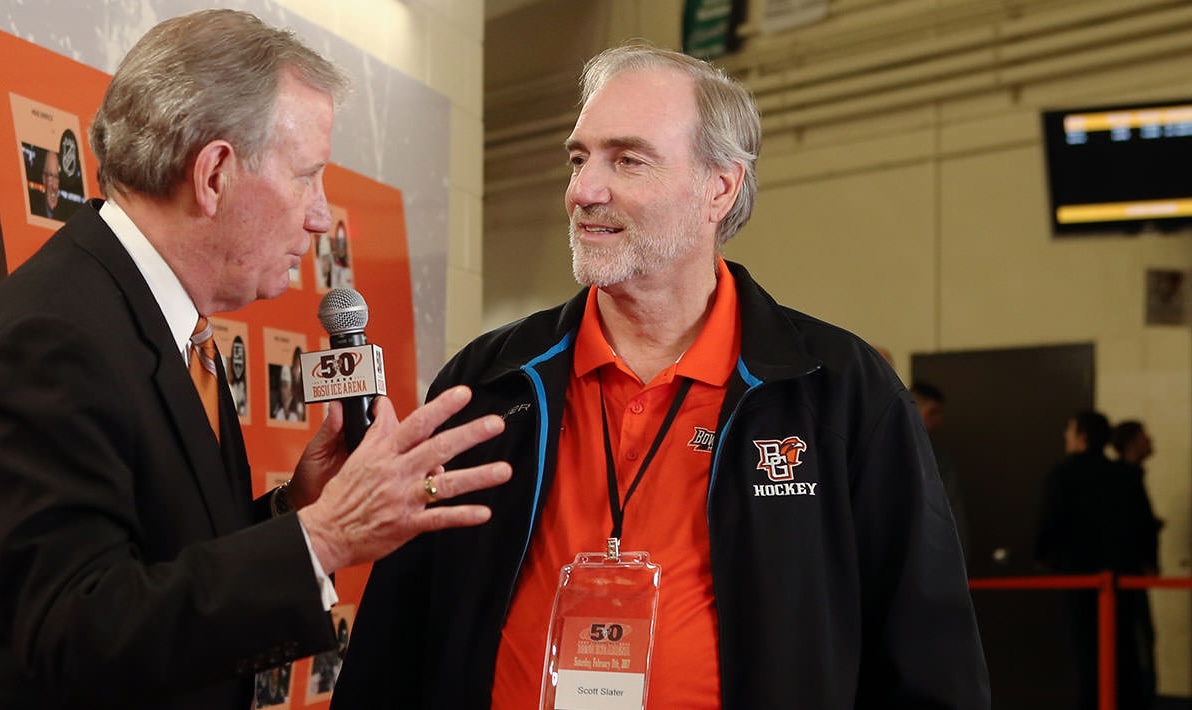
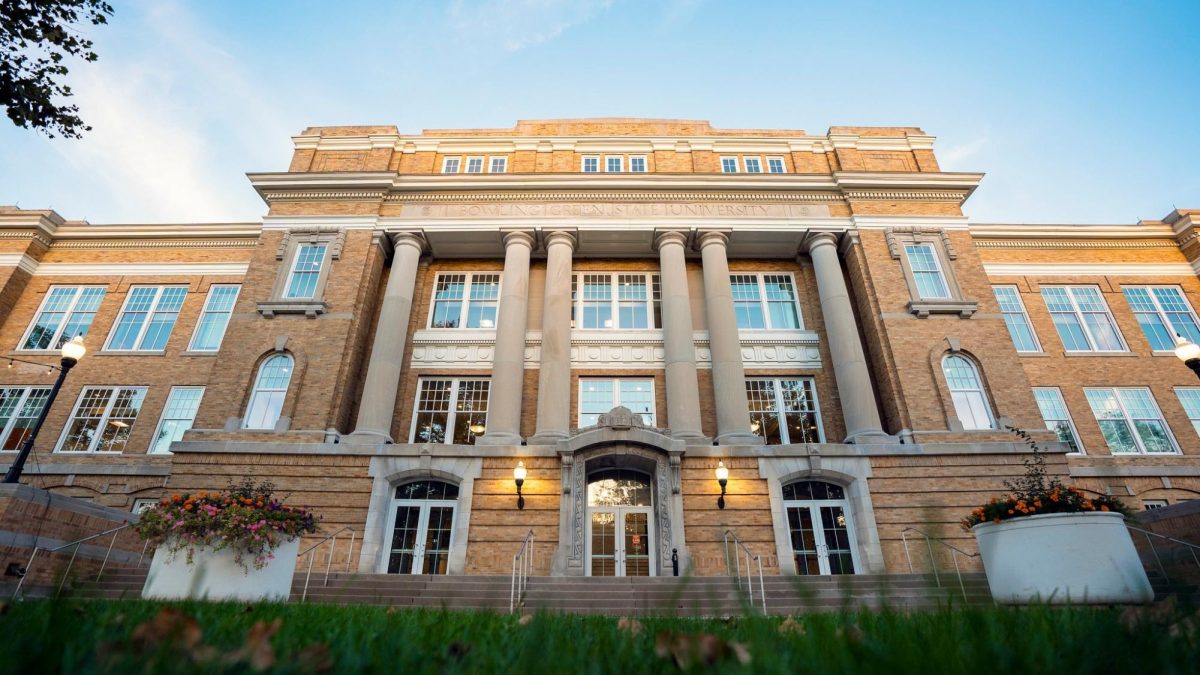
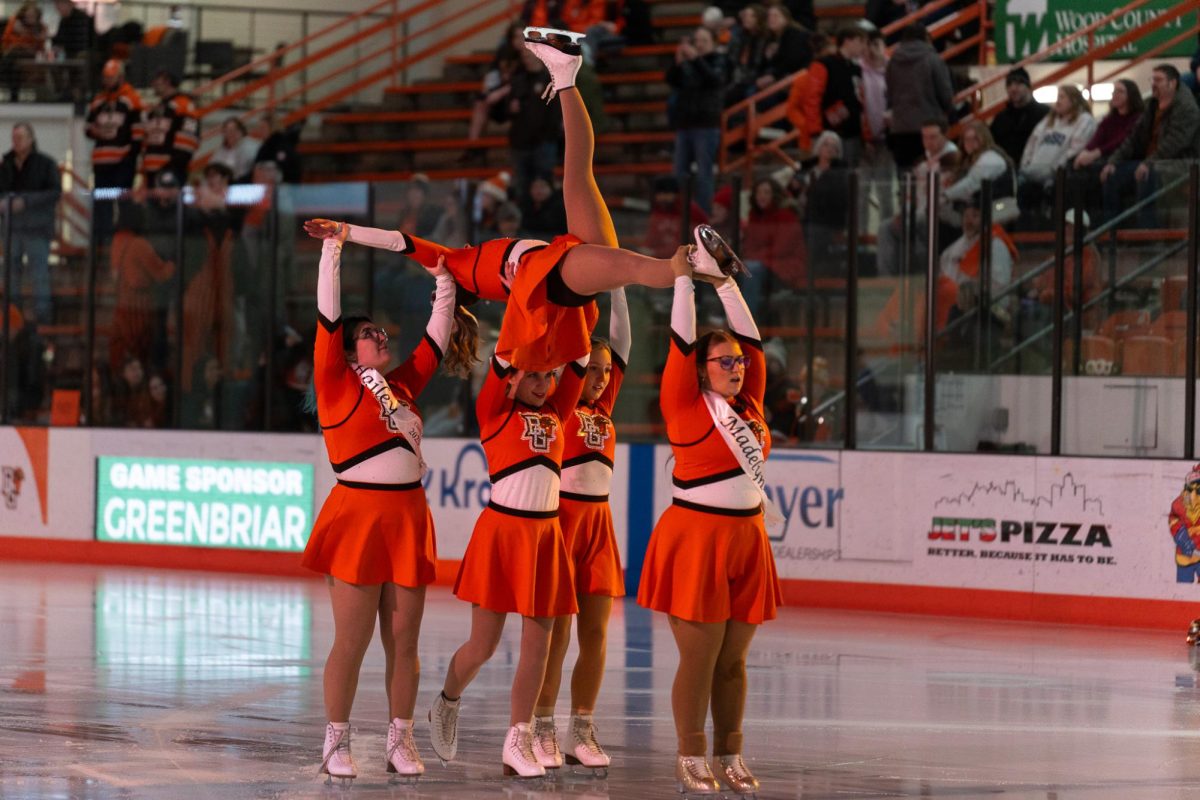


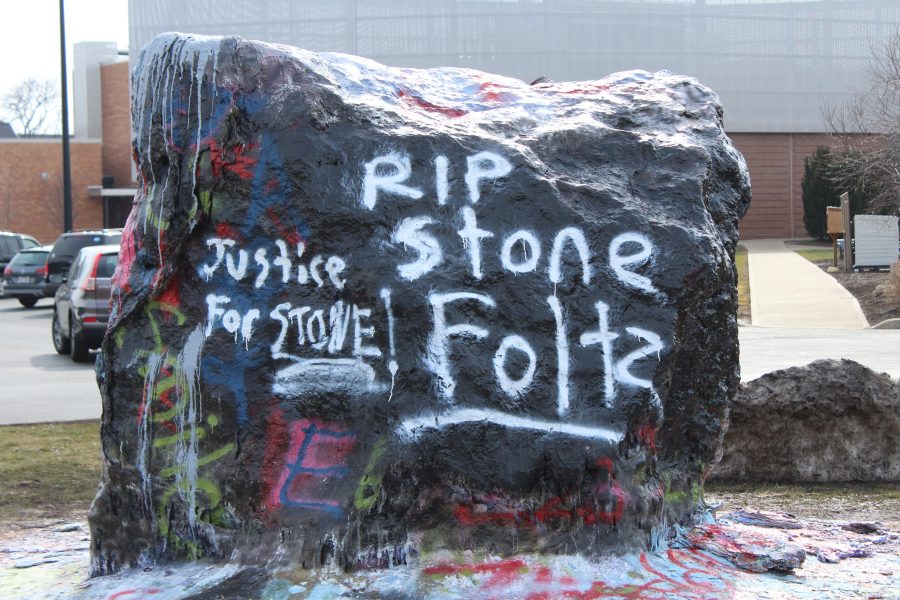

![The parents of Stone Foltz, Shari and Cory, sit with their legal team, as the final defendant in their son's hazing death didn't appear in court. [Feb. 29, 2024]](https://bgfalconmedia.com/wp-content/uploads/2024/03/IMG_1392-1200x900.jpg)
